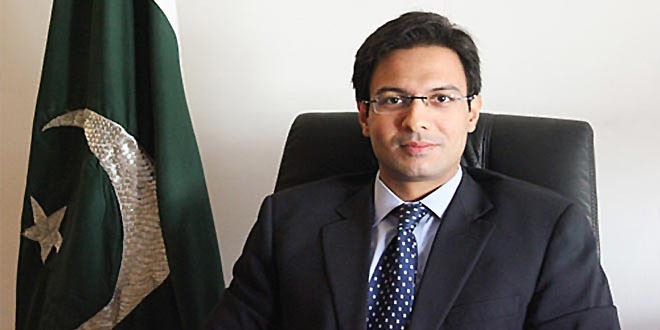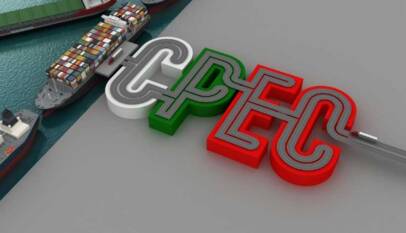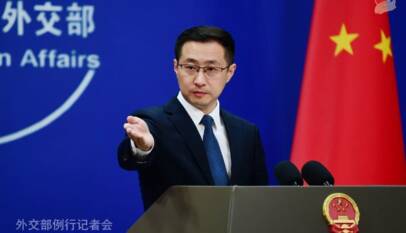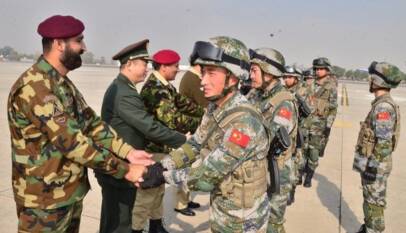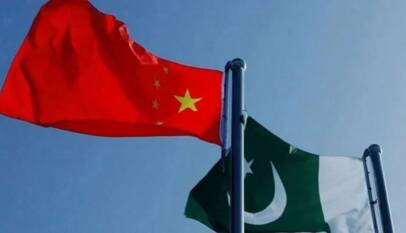Pakistan, China should cooperate for post-pandemic world order: Mustafa Hyder Sayed
Mustafa Hyder Sayed, Executive Director of Pakistan China Instituter writes that as the post-pandemic world order evolves, Pakistan and China must jointly identify and address the challenges to their shared security and economic interests. He highlights that Pakistan should use CPEC as an opportunity to economically strengthen and stabilize itself and become a counter-weight to India in South Asia. He highlights that it is imperative that CPEC is made a model case-study of the BRI as an example for other countries to follow. Pakistan, with China’s help, should undertake targeted poverty alleviation using China’s experience and expertise, make SEZs a resounding success by courting top Chinese manufacturers. Finally, Pakistan and China must prepare a joint strategy, in collaboration other willing partners that share the same vision, for a pluralistic and multilateral post-pandemic world order.
On May 21, Pakistan and China celebrate 70 years of what has been a model bilateral relationship. The Pakistan-China relationship has been reinforced by a consistent policy of Pakistan towards China, supporting China on its key international issues and core interests such as South China Sea, Tibet, Xinjiang, Hong Kong and Taiwan.
Similarly, China has been supporting Pakistan’s position on Kashmir, as well as on Pakistan’s fight against terrorism, and more recently in the fight against the COVID-19 pandemic. By making China-Pakistan Economic Corridor the flagship project of the BRI, China gave a vote of confidence in Pakistan by investing a mammoth $ 62 billion. Whilst there is much to celebrate in the “all-weather friendship” between the two countries, it is also an opportune moment to reflect on how this relationship can be further optimized, and how the next decade should (or could) look like for both countries.
As the post-pandemic world order evolves, Pakistan and China must jointly identify and address the challenges to their shared security and economic interests, as well as realize the strategic opportunities that are emerging in their neighborhood. Since the start of the China–Pakistan Economic Corridor (CPEC) in 2013, Pakistan has received investments in roads, energy, Gwadar Port, as well as grants in the socio-economic sphere that involves clean water, vocational training institutes and hospitals.
Moving forward, Pakistan should use CPEC as an opportunity to economically strengthen and stabilize itself and become a counter-weight to India in South Asia. Under Washington’s Strategy for the Indo-Pacific, the U.S. aims to economically and militarily support India, with the ultimate aim of enabling it to challenge and contain China. Pakistan and China both have border disputes with India.
Pakistan, like India, is a nuclear power with significant military and nuclear deterrence and now needs to focus on increasing employment, economic growth and eliminating poverty. The latter is also a key part of the modern definition of national security and a prerequisite for Pakistan if it is to enhance its relationship with China by further strengthening their shared core interests in Asia and beyond.
Pakistan and China also share the challenge of disinformation and propaganda. China is at the receiving end of the West’s criticism on alleged “human rights violations” in the Xinjiang Uygur Autonomous Region, where in fact, China has successfully defeated terrorism and restored peace and stability there, whilst Pakistan is accused of sponsoring terrorism, despite being a victim of terrorism itself.
This information warfare also transcends to the Belt and Road Initiative, which Pakistan is the proud torch-bearer of, after having witnessed economic growth as well as development in local communities through BRI’s projects. Since the BRI has given the developing world an alternative to traditional sources of financing, which were originally linked to the Bretton-Woods institutions, countries which are beneficiaries of the status quo feel threatened by the BRI and paint it to be a “debt-trap” amongst other things. The “debt-trap” myth was best rebutted by a leading Washington think-tank, The Atlantic Council, in its paper which was published this year called, “There is No Chinese ‘Debt Trap.”
It is imperative that the China-Pakistan Economic Corridor is made a model case-study in the Belt and Road Initiative, as an example for other countries to follow, as it is not just an economic project but a befitting example of building a “community with a shared future for all mankind.” The Belt and Road Initiative gives strategic space for China and developing countries like Pakistan that wish to undertake rapid economic development without the strings attached to Western lending institutions. To strengthen CPEC is to strengthen the future of Pakistan-China relations and subsequently the core, national interests of both the countries that are manifested in CPEC.
Pakistan, with China’s help, should undertake targeted poverty alleviation using China’s experience and expertise, make the CPEC’s Rashakai and Allama Iqbal Special Economic Zones’s in KPK province and Faisalabad, respectively, a resounding success by courting top Chinese manufacturers looking to relocate their industry to consider both and ensure that Pakistan’s companies take advantage of the market access offered by China to Pakistan, which has the potential to significantly increase Pakistan’s exports and reduce international trade deficit that Pakistan faces.
Targeted Poverty Alleviation, popularly known in China as Jing Zhun Fu Pin, identifies poverty-stricken villages, conceives appropriate projects mostly related to housing and infrastructure, and proceeds with efficient implementation of the same. The strategy also involves identifying, more specifically, what are called “poverty households”, which are essentially poor households without any special policies or subsidies being catered to them. Pakistan’s Ehsas Program should engage and work with China’s State Council Leading Group Office of Poverty Alleviation and Development to create a Five-year plan for Pakistan’s Targeted Poverty Alleviation Strategy.
Finally, Pakistan and China must prepare a joint strategy, in collaboration other willing partners that share the same vision, for a pluralistic and multilateral post-pandemic world order. The weaponization and selective application of human rights, unequal access of COVID-19 vaccines and vaccine nationalism, a “zero-sum game” approach to international politics, and intervention in the internal affairs of other states all have to end. The pandemic has reminded us that with unity of purpose, cooperation and political will, we are able to contain and defeat the biggest challenges.
Chinese Ambassador highlights significance of Third Plenary Session for China-Pakistan cooperation
The Third Plenary Session of the 20th Central Committee of the Communist Party of China ha…



